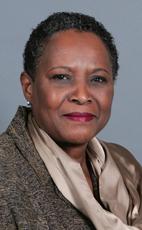Mr. Speaker, I would like to commend the exceptional work of Héberjeune, a community organization in my riding. I wish to congratulate the members of that organization for the honourable mention they received from Quebec's health and social services network in the 2005-06 “support for vulnerable groups and individuals” category.
Héberjeune de Parc Extension, in Montreal, provides temporary accommodation to young adults between 18 and 25 who are in need of help.
It also sponsors a social support program for young people trying to put an end to their isolation by becoming involved in their community, whether by finishing their studies or finding a job, in short, by assuming responsibility for themselves.
Day in and day out, Héberjeune helps young people take control of and change their lives, thus helping change the world in a lasting way.

